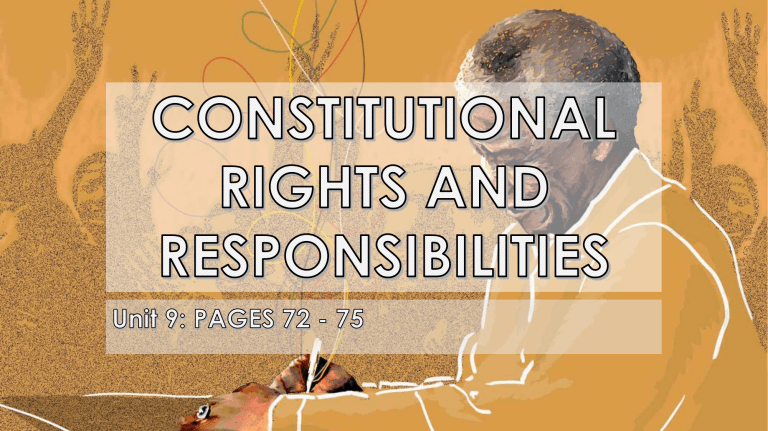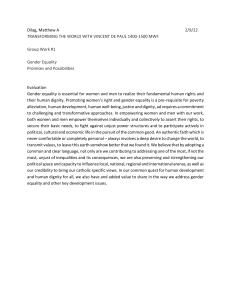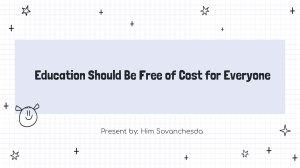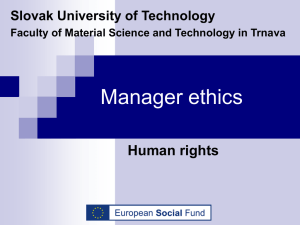
The South African Constitution came into effect on 4 February 1997. Considered one of the most progressive Constitutions in the world. RSA is one, sovereign, democratic state. Sovereign = “possessing supreme or ultimate power” and “very good or effective” Human dignity, achievement of equality and advancement of human rights and freedoms. Non-racism and non-sexism Supremacy of the constitution and the rule of law. Universal adult suffrage (right to vote in political elections), national common voters roll, regular elections and multi-party system of democratic government to ensure accountability, responsiveness and openness Everyone has an inherent (belonging by nature) dignity and, therefore, has the right to have their dignity protected and respected. Dignity is behaving graciously and in a way that demands respect from others – stems from knowing that you are important and have value and it’s based off of how other people treat you. Can’t feel dignified if someone is degrading or humiliating you. Before the law (according to the law) everyone is equal and everyone has the right to equal protection and benefit from the law. Equality means equally enjoying and using all the rights and freedoms allocated to citizens. People may not be discriminated against because of their race, gender, sex, pregnancy, marital status, ethnic or social origin, colour, sexual orientation, age, disability, religion, culture and language This means that the SA Constitution proposes that people should have certain rights and freedoms, and that even these should be improved (update rights and freedoms). Everyone has the right to freedom of expression which includes: Freedom of the press and other media Freedom to receive or share information or ideas Freedom of artistic creativity, academic freedom and freedom of scientific research Everyone has the right to freedom of conscience, religion, thought, belief and opinion. Religious rituals may be held at state or state-aided institutions (only if they follow the rules made by leading authorities, provide the same opportunities for all religions, and attendance is free and voluntary If people are allowed to have freedom, that means they are entitled to make their own decisions and choices. Eg. They can choose where they want to live and what school they want to study at + what they would like to study. If people are allowed to have freedom, they can choose what religion they want to follow (without having to worry about being intimidated). Having freedom also means that people can share their own opinions and be heard – you don’t have to agree with other people’s opinions though. Linked to equality. Different races are equal under SA law. Schools are open to all races. People can and are adopting babies of a race that is different to their own. SA sport is racially mixed. Commission on Gender Equality is part of the Constitution to promote democracy and human rights. Aim is to try and expose gender discrimination laws and to change sexist attitudes, gender stereotypes, as well as teaching how to respect women’s rights. Main aim of the Commission is to help the disadvantaged women (ie. those in rural areas) through helping restore their dignity and pride. Gender Equality starts at home so parents and siblings must teach one another to value and appreciate women and girls.



